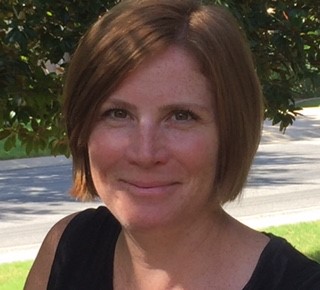
Sara Bowman has been an Organ Donation Coordinator with DonorConnect since January 2011. She is currently the Clinical Manager for Organ Recovery and is responsible for overseeing an exceptional team of Organ Donation Coordinators. Sara works as an Administrator on Call (AOC) and helps oversee the daily activity of the frontline staff. Sara loves collaborating and serves on various committees, including the AOPO IMPACT committee, The Alliance webinar faculty, and the UNOS Region 5 planning committee. Other roles Sara has served in at DonorConnect include Training & Development Specialist and Supervisor of Organ Recovery. Prior to working at DonorConnect, she was a clinical nurse in the Neuro Critical Care and Bone Marrow Transplant units at the University of Utah. Sara earned her Bachelor’s degree in Nursing at the University of Utah. Go Utes!! Sara loves working with DonorConnect and the community that it serves.
Normothermic regional perfusion: Enhancing organ utilization and improving OPO processes
Sara Bowman1, Carrie Poole1, Michelle Aucoin1, Sara Angle1, Brian Beck3, Kate Elorreaga2, DonorConnect NRP Collaboration1,2,3.
1Organ Recovery , DonorConnect, Murray, UT, United States; 2Family Services, DonorConnect, Murray, UT, United States; 3Hospital Services, DonorConnect, Murray, UT, United States
DonorConnect NRP Collaboration.
Introduction: Normothermic Regional Perfusion (NRP) is becoming a popular and successful strategy by which to increase the utilization of DCD organs. Implementing NRP within an OPO brings new opportunities and new challenges. Our learned strategies can help other OPOs implement a successful NRP program more efficiently.
Method: When given the opportunity to support organ recovery through NRP our staff rose to the opportunity. Initially, we prioritized extra-thorough debriefing with our OPO staff after each NRP case to identify challenges and continually refine process-based solutions. From the debriefs, we identified areas where our organization could improve and what strengths we could build on. The creation of checklists, hospital partner presentations, conversations with ethics committees, and dynamic conversations within our OPO helped to pinpoint areas we needed to solidify our viewpoint on the NRP process.
Results: Since September 2021, DonorConnect has facilitated 12 NRP heart recoveries. From those cases, 11 hearts were successfully transplanted. The average Organs Transplanted Per Donor (OTPD) was 3.9, with a total of 47 organs being transplanted. Since then, we have had 157 DCD donors with a total of 280 organs being recovered and transplanted, with an average OTPD of 1.7. Incorporating and fine-tuning the NRP process has facilitated an increase in organ utilization for all DCD donors. DonorConnect has increased the OTPD from 1.7 in 2022 to 2.25 in Q1 of 2023.
Conclusions: An OPO’s role and responsibility within the NRP process brings challenges; however, a review of past NRP successes and challenges has helped us to grow a detailed and systematic process while building assertion and confidence amongst our OPO staff, local transplant teams, and hospital partners. In turn, this collaboration has supported our ultimate objective: increasing the number of organs utilized for transplantation. We prioritize our practice to provide families with transparency so they can understand the NRP process. We continue to have discussions regarding our moral and ethical obligations to the family, hospital partners, and our organization. Our joined forces continue to educate hospitals and staff with an NRP focus and overall increased NRP education organization-wide. Our OPO has become a NRP leader, and our staff has become experts who are actively assisting the other local adult transplant center within our DSA to implement and grow their own NRP program. Our goal is to continue to define our responsibilities and improve our practices as an OPO to ensure an optimal NRP process.